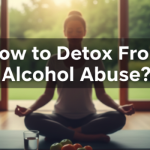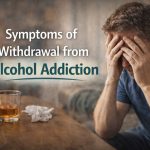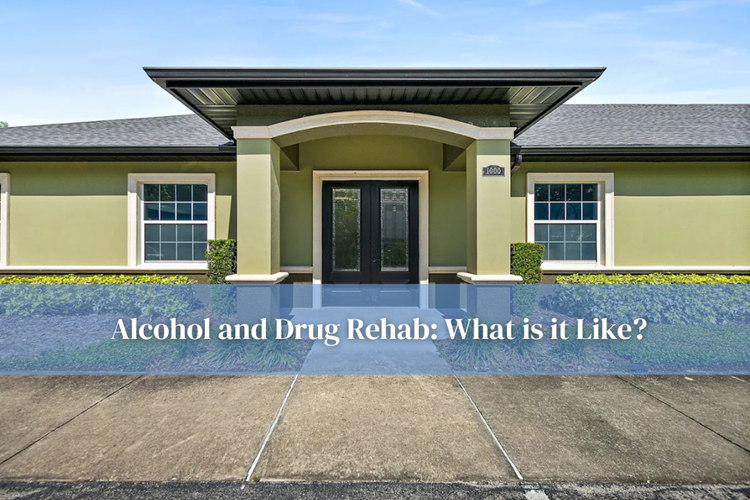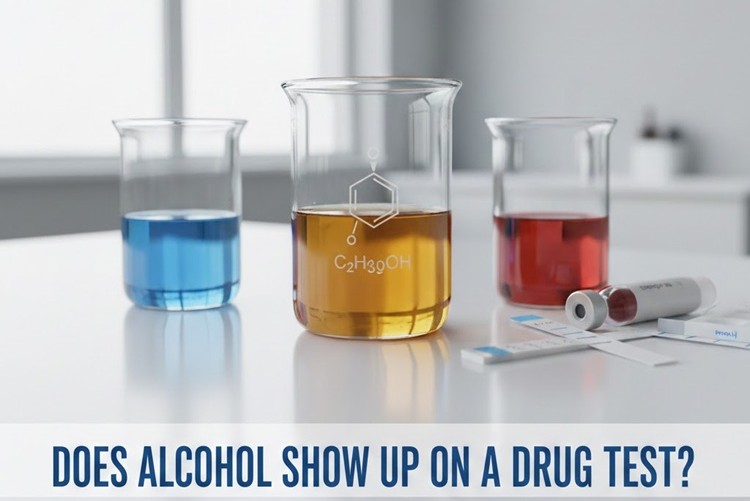Perhaps one of the greatest tragedies to naturally befall a person is the loss of their hair. This is something that will inevitably happen to most people, whether they like it or not, although some accelerate its onset by taking prescription medications, or even illegal drugs that cause hair loss.
Some substances inherently affect the chemistry of the body, or how the body behaves relevant to processes, such as hair growth, or lack of it. These alterations in processes and chemistry tend to lead to certain adverse results, with one of them being hair loss.
In some cases, stopping the use of these substances could prevent the loss of hair and promote scalp hair growth once more. Unfortunately, there are also many instances wherein hair loss is permanent.
How Do Drugs Cause Hair Loss?

An average human has around one million hair follicles on the head, with at least one hundred thousand follicles found on the scalp alone. Over the course of life, many will notice that scalp hair density tends to diminish, and this is not always due to hair loss. The human scalp expands as a person gets older, and humans don’t grow new hair follicles once the highest number of hair follicles has been achieved over the course of a lifetime.
The growth of human hair on the scalp typically encompasses three phases: the anagen phase, the catagen phase, and the telogen phase.
[accordion]
[accordionblock title=”Anagen”]
This is the active phase of the hair, where the cells in the root of the hair divide rapidly. The newly-formed hair strand slowly pushes existing hair strands that have stopped growing, eventually causing them to fall out. The hair strand typically grows an average of 1 centimeter every 28 days.
[/accordionblock]
[accordionblock title=”Catagen”]
This phase is where people form what is known as club hair. Club hair is the hair strands that have achieved the length that they naturally could and have stopped growing. This phase lasts around two to three weeks when the outer root sheath shrinks and attaches to the root of the strand, anchoring it in place.
[/accordionblock]
[accordionblock title=”Telogen”]
This phase is the rest phase of hair growth, which lasts around 100 days and affects the hairs on the eyebrows, eyelashes, arms, and legs. These are the hair strands that typically fall out after some time, and mark the end of the body’s ability to produce new hair follicles.
Once the body stops producing hair follicles, hair loss will become more apparent as time goes by. This is when people become particularly vulnerable to hair loss due to various factors, such as health, prescription medication, stress, or complications from substance abuse.
Some certain medications and substances tend to interfere with the natural scalp hair cycle, causing hair to fall out much earlier than it should. This should happen during the Telogen phase, where the scalp will not produce new hair follicles anymore. During this phase, hair is lost and won’t be replenished. This is one of the leading causes of hair loss associated with prescription medication, and also with other substances by way of complications.
[/accordionblock]
[/accordion]
What Type of Drugs Cause Hair Loss?

There are actually a lot of medications that lead to or actually promote hair loss due to their chemical composition, or what their effect on the body is. Here are a number of these substances:
[accordion]
[accordionblock title=”Retinoids”]
Retinoids are medications primarily used to treat various skin conditions, such as acne and skin discoloration. Although this medication is derived from vitamin A to help lower inflammation and promote cell turnover, it also promotes the premature rest phase of hair growth. During this step, Telogen causes the hair to fall out earlier than it should. There is evidence, however, that once the use of retinoids is stopped, the effect it has on the scalp also ceases.
[/accordionblock]
[accordionblock title=”Antidepressants”]
Antidepressants are medications used to treat mood and psychological disorders such as depression, anxiety, and bipolar disorder. While antidepressants are believed to cause hair loss, the mechanism that causes it has not yet been conclusively established. It is theorized that it has something to do with the way antidepressants affect certain chemicals in the brain, which in turn, may be tied in with the scalp hair phases.
Commonly used antidepressants that may cause hair loss include:
- Bupropion (Wellbutrin)
- Fluoxetine (Prozac)
- Paroxetine (Paxil)
- Sertraline (Zoloft)
- Duloxetine (Cymbalta)
- Venlafaxine (Effexor)
- Desvenlafaxine (Pristiq)
[/accordionblock]
[accordionblock title=”Anticoagulants”]
Anticoagulants are medications used to prevent blood clots, and as such, are alternatively called blood thinners. Reported cases of hair loss attributed to anticoagulants indicate the effect on scalp hair usually takes place anywhere from several weeks to over a year after starting the medication.
Commonly used anticoagulants that may cause hair loss include:
- Heparin
- Warfarin (Coumadin)
- Apixaban (Eliquis)
- Rivaroxaban (Xarelto)
[/accordionblock]
[accordionblock title=”Anticonvulsants”]
Anticonvulsants, alternatively called antiepileptics, are medications used to prevent seizures by stabilizing the electrical activity in the brain.
Commonly used anticonvulsants that may cause hair loss include:
- Valproic acid (Depakote)
- Pregabalin (Lyrica)
- Levetiracetam (Keppra)
[/accordionblock]
[accordionblock title=”Beta-blockers”]
Beta-blockers are prescription medications used to regulate high blood pressure or treat heart conditions. These medications also come in the form of eye drops used to treat glaucoma and ocular hypertension.
Commonly used beta blockers that may cause hair loss include:
- Propranolol (Inderal)
- Atenolol (Tenormin)
- Metoprolol (Lopressor, Toprol XL)
- Timolol eye drops (Timoptic)
- Losartan (Cozaar)
[/accordionblock]
[accordionblock title=”Antithyroid medications”]
One of the side effects of a thyroid condition is hair loss. Even without the use of illegal drugs that cause hair loss, hair loss will inevitably be experienced if one has a thyroid condition. Antithyroid medications used to treat hyperthyroidism will simply aggravate or compound the issue of hair loss.
Commonly used beta blockers that may cause hair loss include:
- Methimazole (Tapazole)
- Propylthiouracil
[/accordionblock]
[accordionblock title=”Chemotherapy”]
Chemotherapy is perhaps the most common cancer treatment known to man. This treatment is used to kill cancer cells, but because it has a tendency to also destroy other cells, it produces quite a few adverse effects in the body. One of these effects is the death of hair follicles. Due to its potency, chemotherapy often causes hair loss in the days or weeks that follow the beginning of the treatment. Hair loss becomes more pronounced after 1 to 2 months.
Commonly used chemotherapy medications that can cause hair loss include:
- Cyclophosphamide (Cytoxan)
- Doxorubicin (Adriamycin)
[/accordionblock]
[accordionblock title=”Tamoxifen”]
Tamoxifen is a medication used in breast cancer treatment. It is also used as a preventive measure to lower the risk of developing breast cancer in others. Tamoxifen is known to also induce hair loss, but the effect is usually temporary. Scalp hair has been observed to regrow once treatment is completed.
[/accordionblock]
[accordionblock title=”Arthritis medications”]
A number of medications used to treat arthritis and other autoimmune conditions are believed to cause hair loss because they prevent cells from growing or maturing. This includes the cells associated with hair growth.
Commonly used arthritis medications that can cause hair loss include:
- Methotrexate
- Leflunomide (Arava)
- Etanercept (Enbrel)
- Adalimumab (Humira)
- Meloxicam (Mobic)
[/accordionblock]
[accordionblock title=”Allopurinol”]
Allopurinol is a medication used to treat gout or high blood uric acid levels. The hair loss effect associated with this medication is usually temporary, and hair tends to grow back once treatment is stopped.
[/accordionblock]
[accordionblock title=”Sinemet”]
Sinemet is a medication used to treat symptoms of Parkinson’s disease. It contains levodopa which is known to cause temporary hair loss. Once treatment has been completed and Sinemet is no longer being used, hair tends to regrow once more.
[/accordionblock]
[accordionblock title=”Bromocriptine”]
Bromocriptine is a medication used to treat Parkinson’s disease and hormonal problems caused by a pituitary gland disorder. Bromocriptine can cause temporary hair loss, although the hair typically grows back if the medication is stopped.
This list of drugs that cause hair loss is by no means complete, as hair loss may also be the result of a particular reaction of certain people to some other medication that is not on this list. There are many cases wherein different people also react differently to the medications in that they don’t experience the known common side effects, but instead manifest different ones, such as hair loss.
There are also some cases wherein a person is taking a specific medication that is not known to cause hair loss on its own but promotes hair loss once taken with another specific type of medication or substance. In this instance, the other medication or substance becomes a catalyst and causes the presence of the two medications in the body to cause hair loss, and perhaps other side effects as well.
[/accordionblock]
[/accordion]
Orlando Treatment Solutions Can Help with Substance Addiction

To this day, there is no direct link between alcohol intake and hair loss, regardless of the frequency or quantity of alcohol taken. What is known, however, is that the many adverse effects caused by chronic alcohol intake could lead to conditions that promote hair loss.
The effect of chronic alcohol intake that is most likely to promote hair loss, however, is believed to be the nutritional deficiencies associated with it. Alcohol intake is known to cause nutritional deficiencies primarily through dehydration. Not only is alcohol a potent diuretic, causing people to urinate more than they usually do, but it is also largely toxic after enough of it is ingested.



























